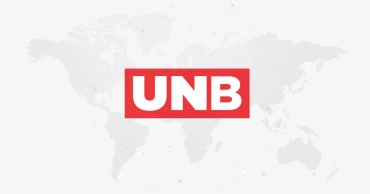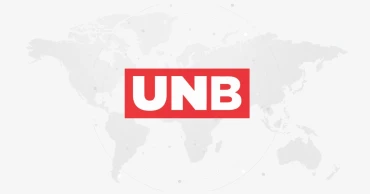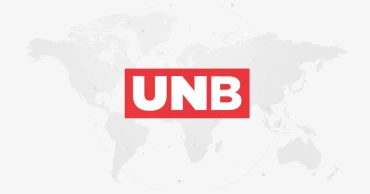BioNTech
Moderna sues Pfizer over patents behind COVID-19 vaccine
COVID-19 vaccine maker Moderna is suing Pfizer and the German drugmaker BioNTech, accusing its main competitors of copying Moderna’s technology in order to make their own vaccine.
Moderna said Friday that Pfizer and BioNTech’s vaccine Comirnaty infringes on patents Moderna filed several years ago protecting the technology behind its preventive shot, Spikevax. The company filed patent infringement lawsuits in both U.S. federal court and a German court.
Pfizer spokeswoman Pam Eisele said the company had not fully reviewed Moderna’s lawsuit, but the drugmaker was surprised by it, given that their vaccine is based on proprietary technology developed by both BioNTech and Pfizer.
She said in an email that the company would “vigorously defend” against any allegations in the case.
BioNTech did not immediately respond to a request from The Associated Press seeking comment.
Moderna and Pfizer’s two-shot vaccines both use mRNA technology to help patients fight the coronavirus.
The mRNA vaccines work by injecting a genetic code for the spike protein that coats the surface of the coronavirus. That code, the mRNA, is encased in a little ball of fat, and instructs the body’s cells to make some harmless spike copies that train the immune system to recognize the real virus.That approach is radically different than how vaccines have traditionally been made.
Read: Int'l community urged to intensify pressure on Myanmar military to stop violence against its people
Moderna said it started developing its mRNA technology platform in 2010, and that helped the company quickly produce its COVID-19 vaccine after the pandemic arrived in early 2020.
By the end of that year, U.S. regulators had cleared shots from both Pfizer and Moderna for use after clinical research showed that both were highly effective.
Moderna CEO Stephane Bancel said in a prepared statement that the vaccine developer pioneered that technology and invested billions of dollars in creating it.
The company said it believes its rivals’ vaccine infringes on patents Moderna filed between 2010 and 2016.
Moderna said it recognizes the importance of vaccine access and is not seeking to remove Comirnaty from the market. It also is not asking for an injunction to prevent future sales.
Moderna said in 2020 that it would not enforce its COVID-19 related patents while the pandemic continued. But the company said in March, with vaccine supplies improving globally, that it would update that pledge.
It said it still would not enforce its patients for vaccines used in low- and middle-income countries. But it expected companies like Pfizer and BioNTech to respect its intellectual property, and it would consider “a commercially reasonable license” in other markets if they requested one.
“Pfizer and BioNTech have failed to do so,” Moderna said in a statement.
3 years ago
Pfizer says COVID booster offers protection against omicron
Pfizer said Wednesday that a booster dose of its COVID-19 vaccine may protect against the new omicron variant even though the initial two doses appear significantly less effective.
Pfizer and its partner BioNTech said lab tests showed a booster dose increased by 25-fold the level of so-called neutralizing antibodies against omicron.
Pfizer announced the preliminary laboratory data in a press release and it hasn’t yet undergone scientific review. The companies already are working to create an omicron-specific vaccine in case it’s needed.
READ: Omicron v. delta: Battle of coronavirus mutants is critical
Scientists have speculated that the high jump in antibodies that comes with a third dose of COVID-19 vaccines might be enough to counter any decrease in effectiveness.
Antibody levels predict how well a vaccine may prevent infection with the coronavirus but they are just one layer of the immune system’s defenses. Pfizer said two doses of the vaccine may still induce protection against severe disease.
“Although two doses of the vaccine may still offer protection against severe disease caused by the Omicron strain, it’s clear from these preliminary data that protection is maximized with a third dose of our vaccine,” Pfizer CEO Albert Bourla said in a statement.
READ: How can I protect myself from the new omicron variant?
Pfizer’s announcement had an immediate impact on U.S. markets. Futures that had pointed to a lower open reversed course in seconds and swung solidly to the positive with the Dow jumping almost 200 points.
4 years ago
Pfizer says COVID-19 vaccine works in kids ages 5 to 11
Pfizer said Monday its COVID-19 vaccine works for children ages 5 to 11 and that it will seek U.S. authorization for this age group soon — a key step toward beginning vaccinations for youngsters.
The vaccine made by Pfizer and its German partner BioNTech already is available for anyone 12 and older. But with kids now back in school and the extra-contagious delta variant causing a huge jump in pediatric infections, many parents are anxiously awaiting vaccinations for their younger children.
For elementary school-aged kids, Pfizer tested a much lower dose — a third of the amount that’s in each shot given now. Yet after their second dose, children ages 5 to 11 developed coronavirus-fighting antibody levels just as strong as teenagers and young adults getting the regular-strength shots, Dr. Bill Gruber, a Pfizer senior vice president, told The Associated Press.
Read: US assures Covid cooperation to continue as 1-mn doses of Pfizer's vaccine received
The kid dosage also proved safe, with similar or fewer temporary side effects — such as sore arms, fever or achiness — that teens experience, he said.
“I think we really hit the sweet spot,” said Gruber, who’s also a pediatrician.
Gruber said the companies aim to apply to the Food and Drug Administration by the end of the month for emergency use in this age group, followed shortly afterward with applications to European and British regulators.
Earlier this month, FDA chief Dr. Peter Marks told the AP that once Pfizer turns over its study results, his agency would evaluate the data “hopefully in a matter of weeks” to decide if the shots are safe and effective enough for younger kids.
An outside expert said scientists want to see more details but called the report encouraging.
“These topline results are very good news,” said Dr. Jesse Goodman of Georgetown University, a former FDA vaccine chief. The level of immune response Pfizer reported “appears likely to be protective.”
Read: US regulators give full approval to Pfizer COVID-19 vaccine
Many Western countries so far have vaccinated no younger than age 12, awaiting evidence of what’s the right dose and that it works safely. Cuba last week began immunizing children as young as 2 with its homegrown vaccines and Chinese regulators have cleared two of its brands down to age 3.
While kids are at lower risk of severe illness or death than older people, more than 5 million children in the U.S. have tested positive for COVID-19 since the pandemic began and at least 460 have died, according to the American Academy of Pediatrics. Cases in children have risen as the delta variant swept through the country.
4 years ago
Can you mix and match Covid-19 vaccines?
Can you mix and match two-dose COVID-19 vaccines?
It’s likely safe and effective, but researchers are still gathering data to be sure.
The authorized COVID-19 shots around the world are all designed to stimulate your immune system to produce virus-fighting antibodies, though the way they do so varies, noted Dr. Kate O’Brien, director of the World Health Organization’s vaccine unit.
“Based on the basic principles of how vaccines work, we do think that the mix-and-match regimens are going to work,” she said.
Also read: Why do some people get side effects after COVID-19 vaccines?
Scientists at Oxford University in the United Kingdom are testing combinations of the two-dose COVID-19 vaccines made by AstraZeneca, Moderna, Novavax and Pfizer-BioNTech. Smaller trials are also ongoing in Spain and Germany.
“We really just need to get the evidence in each of these (vaccine) combinations,” O’Brien said.
So far, limited data suggests an AstraZeneca shot followed by the Pfizer shot is safe and effective. The combination also appears to come with a slightly higher likelihood of temporary side effects like aches and chills.
That might be because mixing and matching different types of vaccines can often produce a stronger immune response, said Lawrence Young, a virologist at the University of Warwick in the United Kingdom.
Also read: How long does protection from COVID-19 vaccines last?
In some places, health officials already suggest mixing in select circumstances.
After the AstraZeneca vaccine was linked to extremely rare blood clots, many European countries including Germany, France and Spain recommended people who got it as a first dose get a Pfizer or Moderna shot as a second dose instead.
In Britain and Canada, officials say people should aim to get the same vaccine for their second dose if possible. If they got AstraZeneca as their first shot, they’re advised to get another vaccine only if they have a history of blood clots or other conditions that might put them at higher risk of clots.
4 years ago
BioNTech to set up Asia-Pacific hub, vaccine plant in Singapore
German biotechnology company BioNTech SE said Monday it has chosen Singapore for its first regional hub in the Asia-Pacific region and will also set up a manufacturing facility in the city-state to produce mRNA-based vaccines.
The new mRNA plant will produce a range of novel mRNA vaccines and therapeutics for infectious diseases and cancer.
Also Read: UN health agency clears Pfizer and BioNTech vaccines
BioNTech plans to open its Singapore office and start construction of the manufacturing facility this year, with the plant expected to be operational as early as 2023.
The manufacturing facility, coming on the heels of the establishment of its U.S. headquarters last year, will help Southeast Asia speed up its response to future pandemic threats in the region.
"Having multiple nodes in our production network is an important strategic step in building out our global footprint and capabilities," said Ugur Sahin, chief executive office and co-founder of BioNTech.
"Singapore provides an excellent business climate, growing biotechnology industry and rich talent base," he said.
Singapore Trade and Industry Minister Chan Chun Sing said on his Facebook page that BioNTech's choice will "strengthen Singapore's position as a leading hub for biopharmaceutical manufacturing" and its position as a critical node within the global vaccine value chain.
Also Read:Mexico starts giving first shots of Pfizer-BioNtech vaccine
This is the third major investment in Singapore by a global pharmaceutical company following announcements by U.S. firm Thermo Fisher Scientific Inc. and French pharmaceutical firm Sanofi in recent months.
In October last year, Thermo Fisher announced plans to develop a US$130 million facility in Singapore for the development and manufacture of therapies and vaccines.
Sanofi said in April this year that it plans to invest 400 million euros (US$487 million) over five years to set up a vaccine production center in Singapore to mainly supply the Asian region and complement existing manufacturing capacities in Europe and North America.
4 years ago
COVAX reaches over 100 economies, 42 days after first international delivery
More than one hundred economies have received life-saving COVID-19 vaccines from COVAX, the global mechanism for equitable access to COVID-19 vaccines, says the World Health Organization (WHO) on Thursday.
The milestone comes 42 days after the first COVAX doses were shipped and delivered internationally, to Ghana on 24 February 2021.
COVAX has now delivered more than 38 million doses across six continents, supplied by three manufacturers, AstraZeneca, Pfizer-BioNTech and the Serum Institute of India (SII).
Of the over 100 economies reached, 61 are among the 92 lower-income economies receiving vaccines funded through the Gavi COVAX Advance Market Commitment (AMC).
Despite reduced supply availability in March and April – the result of vaccine manufacturers scaling and optimizing their production processes in the early phase of the rollout, as well as increased demand for COVID-19 vaccines in India – COVAX expects to deliver doses to all participating economies that have requested vaccines in the first half of the year.
Also read: Covishield and Covaxin: What we know about India's Covid-19 vaccines
“In four months since the very first mass vaccination outside a clinical setting anywhere in the world, it is tremendously gratifying that the roll-out of COVAX doses has already reached one hundred countries,” said Dr Seth Berkley, CEO of Gavi, the Vaccine Alliance.
Berkley said COVAX may be on track to deliver to all participating economies in the first half of the year yet they still face a daunting challenge as they seek to end the acute stage of the pandemic: they will only be safe when everybody is safe and our efforts to rapidly accelerate the volume of doses depend on the continued support of governments and vaccine manufacturers.
“As we continue with the largest and most rapid global vaccine rollout in history, this is no time for complacency.”
Dr Tedros Adhanom Ghebreyesus, WHO Director-General said COVAX has given the world the best way to ensure the fastest, most equitable rollout of safe and effective vaccines to all at-risk people in every country on the planet.
Also read: ‘We sink or we swim together’: 5 things you need to know about COVAX
“If we are going to realize this great opportunity, countries, producers and the international system must come together to prioritize vaccine supply through COVAX. Our collective future, literally, depends on it.”
Dr Richard Hatchett, CEO of the Coalition for Epidemic Preparedness Innovations (CEPI) this is a significant milestone in the fight against COVID-19. “Faced with the rapid spread of COVID-19 variants, global access to vaccines is fundamentally important to reduce the prevalence of the disease, slow down viral mutation, and hasten the end of the pandemic.”
“In just a month and a half, the ambition of granting countries access to COVID vaccines is becoming a reality, thanks to the outstanding work of our partners in the COVAX Facility,” said Henrietta Fore, UNICEF Executive Director.
“However, this is no time to celebrate; it is time to accelerate. With variants emerging all over the world, we need to speed up global rollout. To do this, we need governments, along with other partners, to take necessary steps to increase supply, including by simplifying barriers to intellectual property rights, eliminating direct and indirect measures that restrict exports of COVID-19 vaccines, and donating excess vaccine doses as quickly as possible.”
Also read: WHO calls for prioritising vaccine contracts with COVAX
According to its latest supply forecast, COVAX expects to deliver at least 2 billion doses of vaccines in 2021. In order to reach this goal, the COVAX Facility will continue to diversify its portfolio further, and will announce new agreements with vaccine manufacturers in due course.
Furthermore, in March it was announced that the United States government will host the launch event for the 2021 Gavi COVAX AMC Invest Opportunity to catalyze further commitment and support for accelerated access to vaccines for AMC-supported economies.
An additional US$ 2 billion is required in 2021 to finance and secure up to a total of 1.8 billion donor-funded doses of vaccines. COVAX is also working to secure additional sourcing of vaccines in the form of dose-sharing from higher income countries.
4 years ago
Pfizer studying effects of 3rd vaccine dose
Pfizer announced Thursday that it has begun studying a third dose of its COVID-19 vaccine, part of a strategy to guard against mutated versions of the coronavirus.
4 years ago
‘Don’t worry, come forward’: Asian nations get 1st shots
Many nations in the Asia-Pacific region are rolling out the first shots for COVID-19 this week.
4 years ago
Hong Kong approves emergency use of Fosun Pharma-BioNTech vaccine
Hong Kong has given nod to the emergency use of the mRNA COVID-19 vaccine developed by Fosun Pharma and BioNTech, and the first one million doses are expected to arrive in Hong Kong in late February.
5 years ago
EU agency ponders approval for Moderna's COVID-19 vaccine
The European Union’s medicines agency was meeting Wednesday to consider giving the green light to Moderna Inc.'s COVID-19 vaccine, a decision that would give the 27-nation bloc a second vaccine to use in the desperate battle to tame the virus rampaging across the continent.
5 years ago

.jpg)


.jpg)
.jpg)
.jpg)
.jpg)



